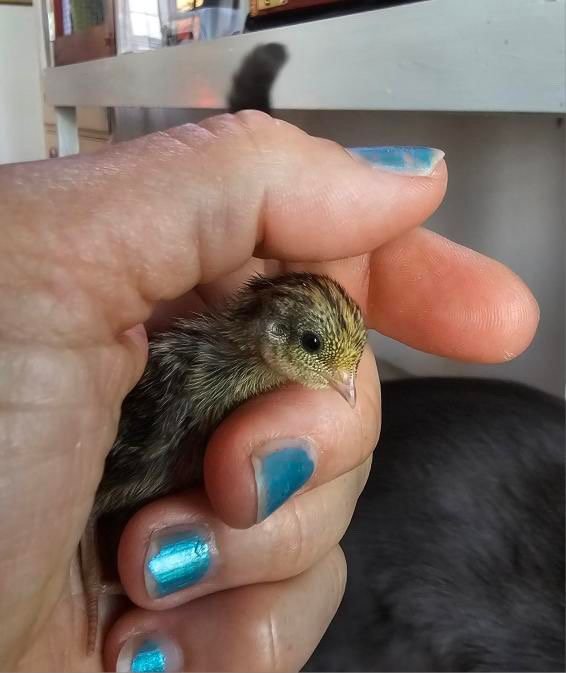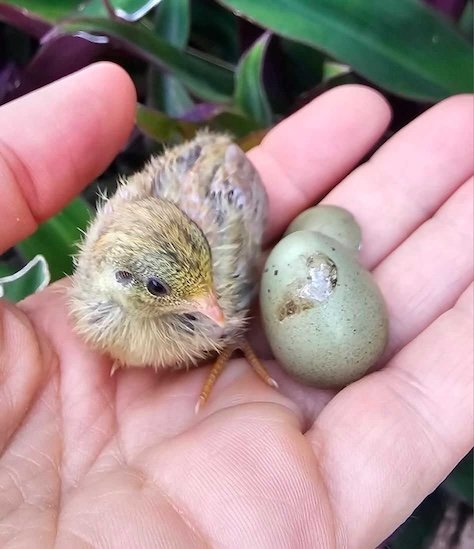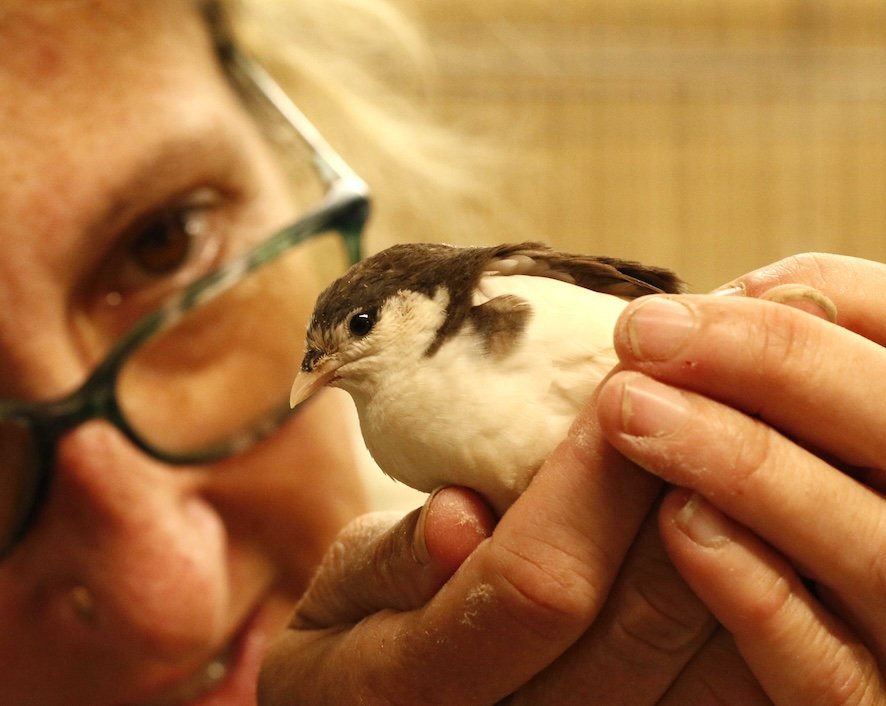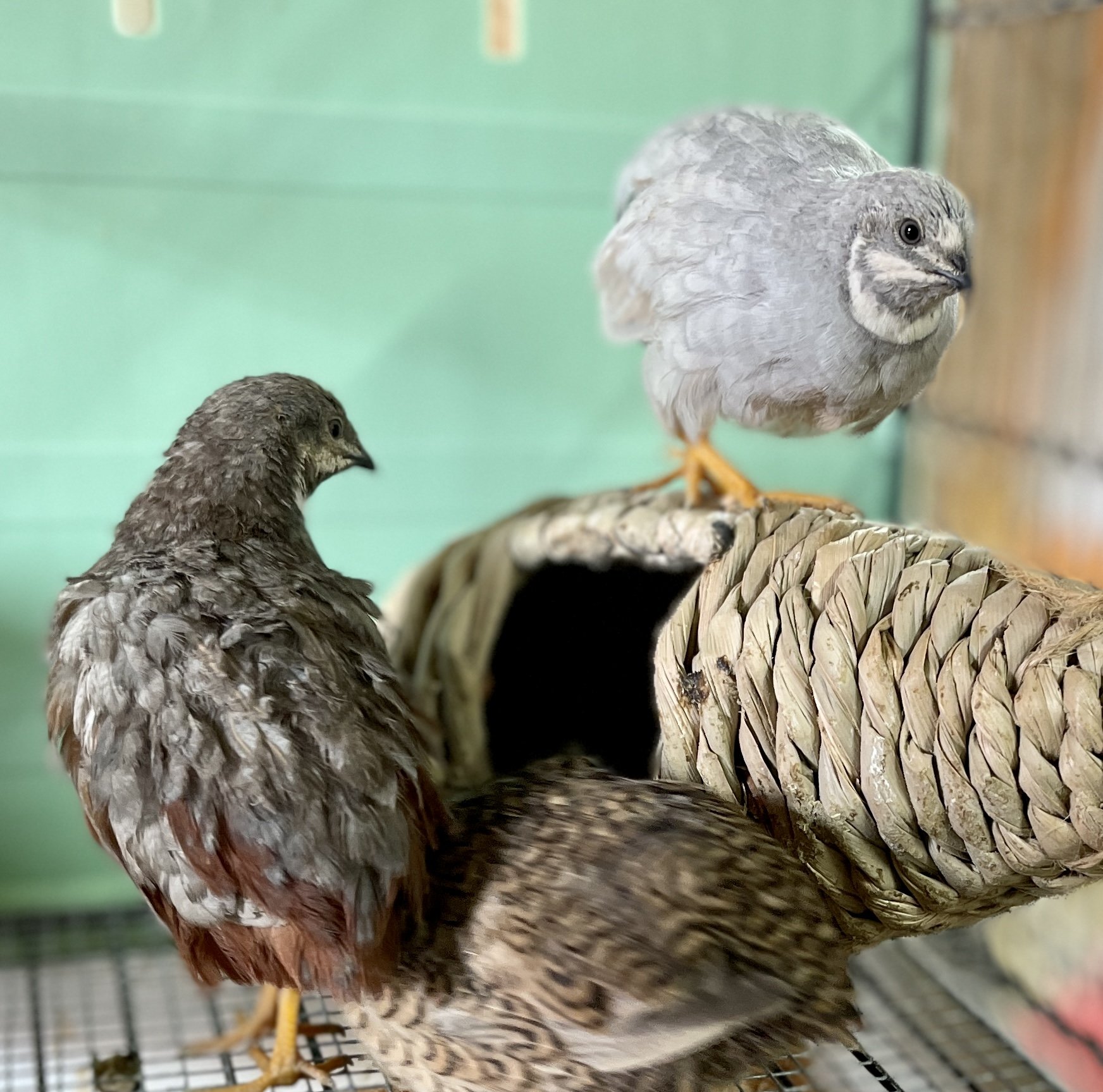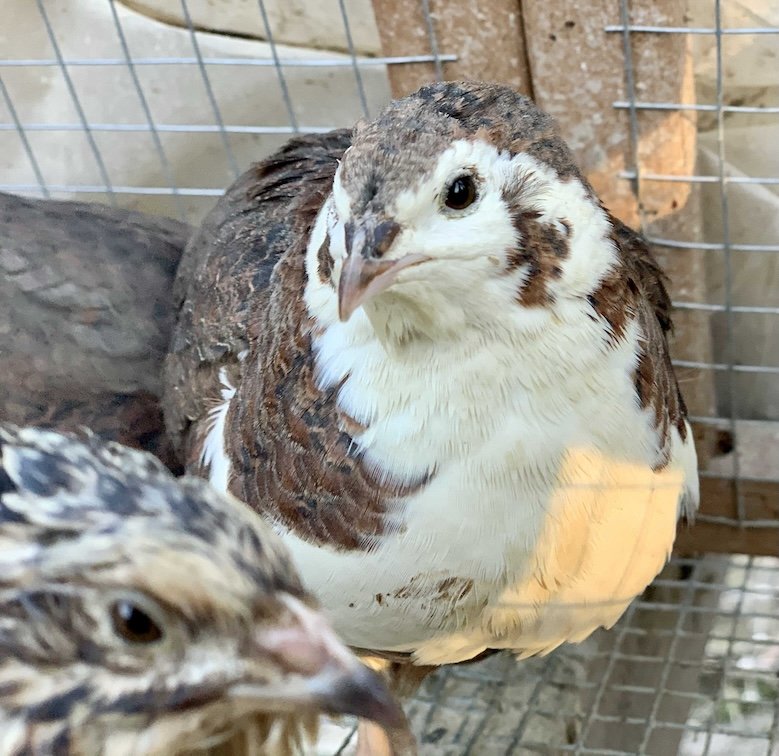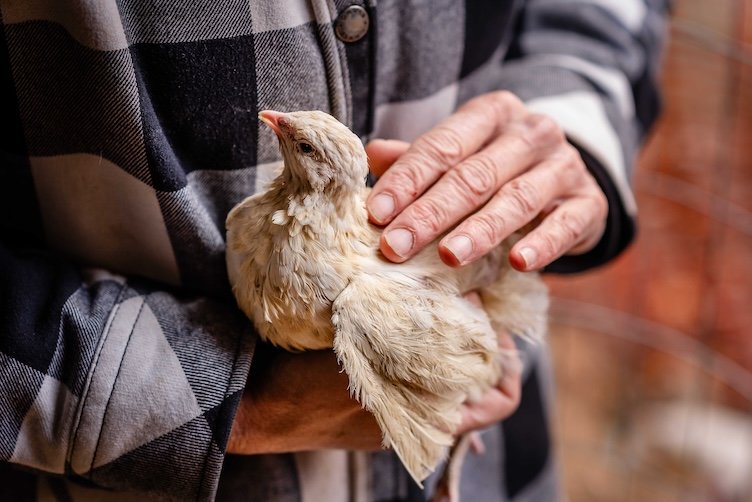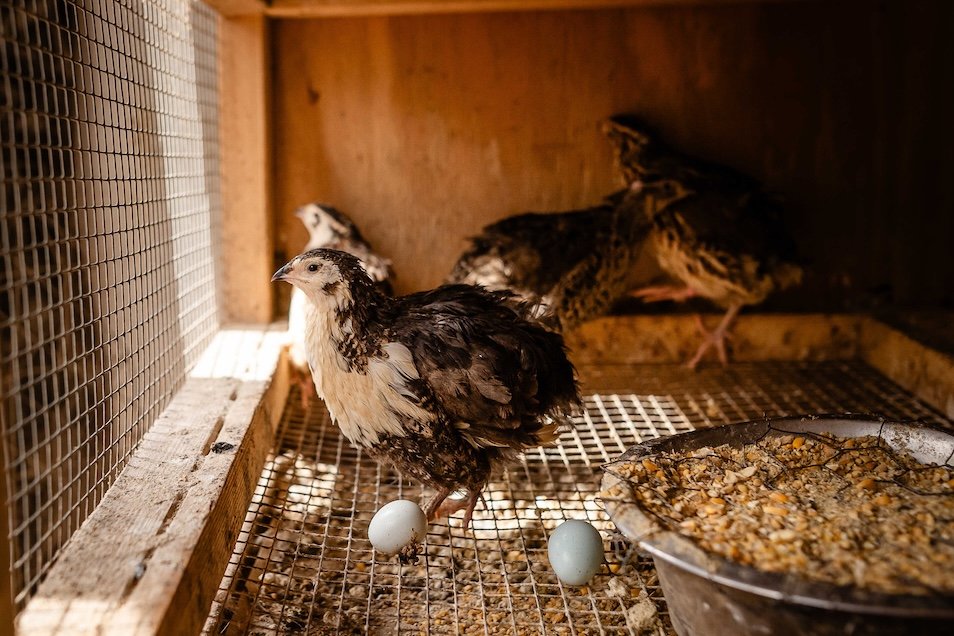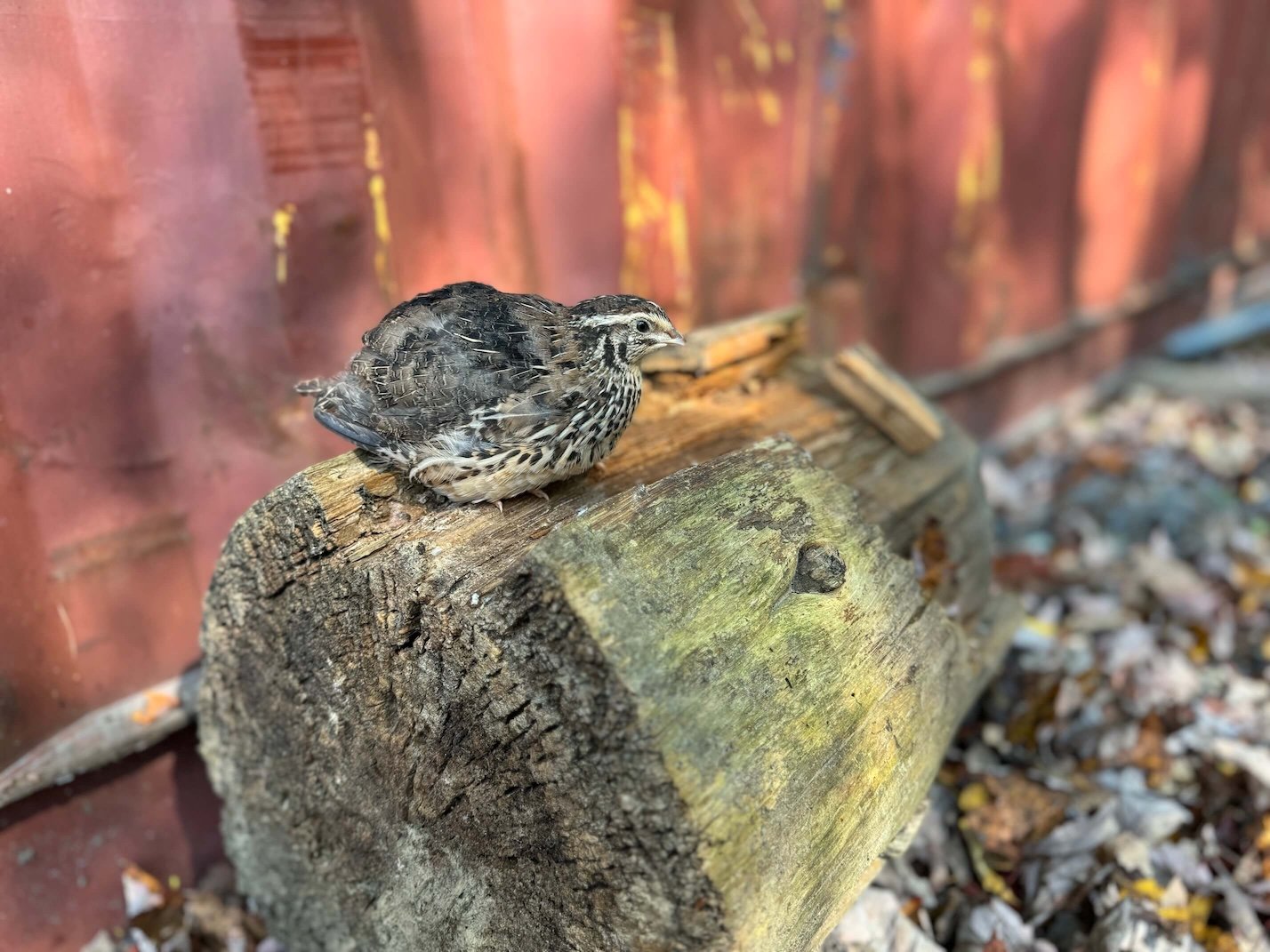Button Quail Unsexed Chicks
Class and Order: Avis and Turnicidae
Family and Genus: Charadiformes and Turnix
Country of Origin: China
Bird Size: Extra Small .5 ounces to 1.5 ounces
Primary Use: Ornamental, pets, and aviary or greenhouse clean up
Egg Production: Excellent
Egg Size: Extra small
Egg Color: Shades of green
Hardiness: Good, prefer warm climates and/or warm areas to live
Temperament: Flighty
Environment Type: Cage or aviary
Class and Order: Avis and Turnicidae
Family and Genus: Charadiformes and Turnix
Country of Origin: China
Bird Size: Extra Small .5 ounces to 1.5 ounces
Primary Use: Ornamental, pets, and aviary or greenhouse clean up
Egg Production: Excellent
Egg Size: Extra small
Egg Color: Shades of green
Hardiness: Good, prefer warm climates and/or warm areas to live
Temperament: Flighty
Environment Type: Cage or aviary
Class and Order: Avis and Turnicidae
Family and Genus: Charadiformes and Turnix
Country of Origin: China
Bird Size: Extra Small .5 ounces to 1.5 ounces
Primary Use: Ornamental, pets, and aviary or greenhouse clean up
Egg Production: Excellent
Egg Size: Extra small
Egg Color: Shades of green
Hardiness: Good, prefer warm climates and/or warm areas to live
Temperament: Flighty
Environment Type: Cage or aviary
-
Button quail are known for their small size, with adults measuring around 3-4 inches in length and weighing between 88 ounces to 1.5 ounces. They have a round, plump body, short tail, and a small, curved beak. Their plumage is a mix of different colors, including brown, gray, black, and white, with intricate patterns that vary between male and female birds. We call them “observational pets.” These are birds that you really can’t hold but observe more. In general, Button Quail are raised for sheer pleasure. They do lay about one egg every other day, and they do grow fast, but the tiny size of both the eggs and bird don’t make them very useful as production birds. They are quiet birds, eat very little, and are very pleasant to have in the home. The noises they make are truly endearing. Button Quail is one of the most popular quails in aviculture. They are also quite commonly kept as pets. Their small size and bright coloration make them very attractive to pet bird owners, who often incorporate button quail into cages with other birds like finches or parakeets. The Button Quail roam the floor of the cage and clean up spilled food from the perching birds above. Button quail are social birds and enjoy the company of other birds. It’s best to keep them in pairs or small groups of up to five birds of the same sex to prevent aggressive behavior. It’s also important to introduce new birds slowly and monitor their interactions to prevent fighting.
-
Button quail, also known as Chinese painted quail or King quail, are small, ground-dwelling birds that belong to the family Phasianidae. These birds are found in different parts of the world, including Asia, Africa, Australia, and the Pacific islands. These birds are technically not quail at all but hemipodes. There is a very long history as to why and the evolution.
It is believed that Button Quail were introduced to the US during World War I. American soldiers, upon seeing them kept as pets in Europe, compared the newly hatched chicks to the size of their buttons on their coats. that along with their unique personalities coined them the nickname “Button Quail”. It is also suggested that the frase “cute as a button” came from the newborn chicks which are a size of a button.
-
Diet: A good feed ration is essential with Button Quail. because of their tiny size, they need to receive all their nutrition in a complete feed. They need a high protein feed which is generally 28% to 30%, we highly recommend Sugar Feather Farm Gamebird Starter. The feed is already ground up and provides all the essential nutrients for a healthy bird. In addition, Button quail are omnivores and require a varied diet that includes vegetables, fruits and insects such as mealworms and grasses. You can also offer small amounts of chopped cooked egg. We like taking their eggs, boiling them and chopping it up and giving it right back, a free protein and calcium source! Fresh water should be available at all times.



